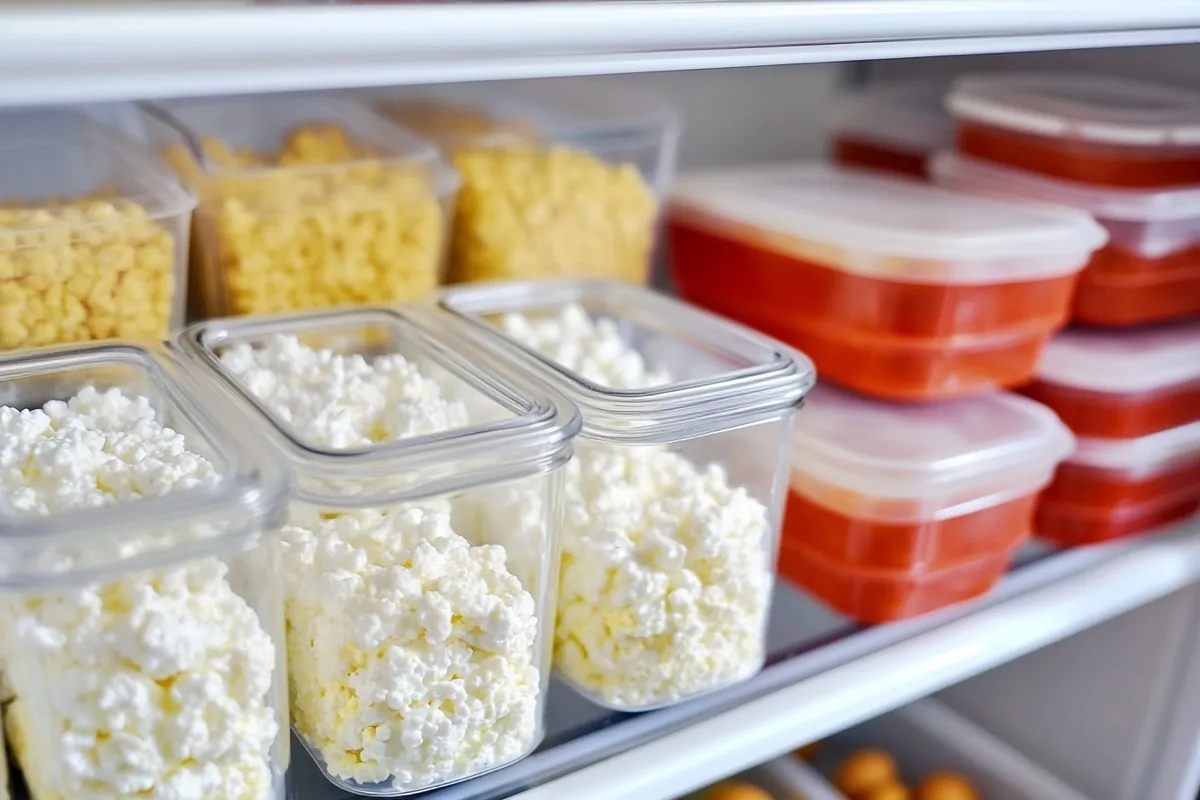Cottage cheese egg bites are a delightful and nutritious option for breakfast or snacks. Packed with protein and flavor, these bites are not only easy to prepare but also incredibly versatile. Whether you enjoy them for an energizing morning meal or a quick afternoon snack, they are sure to satisfy. In this guide, we’ll explore everything you need to know about cottage cheese egg bites, from their nutritional benefits to delicious recipes.
Table of Contents
Introduction to Cottage Cheese Egg Bites
Cottage cheese egg bites have taken the culinary world by storm. These bite-sized snacks are made primarily from eggs and cottage cheese, making them a powerhouse of protein. But what exactly are cottage cheese egg bites? Let’s dive deeper.
What are Cottage Cheese Egg Bites?
Cottage cheese egg bites are small, savory snacks made by blending cottage cheese with eggs and other ingredients like vegetables, herbs, and spices. These ingredients are mixed together and baked until fluffy and golden. They are perfect for meal prep and can be stored in the refrigerator for quick snacks throughout the week.
Nutritional Benefits of Cottage Cheese
Cottage cheese is a nutritional powerhouse. It is high in protein, which helps in muscle building and repair. Additionally, it is low in fat and calories, making it an excellent choice for those looking to maintain a healthy diet. Cottage cheese also supplies essential vitamins and minerals, such as calcium and vitamin B12. Therefore, incorporating it into your diet can offer numerous health benefits.
High Protein Egg Bites with Cottage Cheese
When it comes to high-protein snacks, cottage cheese egg bites are an excellent option. Let’s explore why these bites are a fantastic choice.
Why Choose High Protein Egg Bites?
High protein snacks are essential for maintaining energy levels and supporting muscle growth. Cottage cheese egg bites contain both eggs and cottage cheese, making them perfect for anyone looking to increase their protein intake. As a result, these bites can help you feel fuller for longer, reducing the cravings for unhealthy snacks.
Key Ingredients for High Protein Egg Bites
Creating high protein egg bites with cottage cheese is easy and requires just a few key ingredients. Here’s what you’ll need:
Cottage Cheese
Cottage cheese is the star ingredient in these egg bites. It adds creaminess and a significant protein boost.
Eggs
Eggs are a crucial component, providing structure and additional protein. They also enhance the overall flavor of the bites.
Additional Protein Sources
To enhance the protein content, you can include other ingredients like shredded chicken, turkey, or even beans. These additions not only pack in more protein but also introduce new flavors and textures.
Egg Bites Recipe: Basic Preparation
Now that you understand the benefits of cottage cheese egg bites, let’s look at how to prepare them.
Essential Kitchen Tools
Before you start cooking, ensure you have the right tools. Here’s a quick list:
- Muffin tin or silicone molds
- Mixing bowl
- Whisk
- Measuring cups and spoons
Step-by-Step Recipe for Egg Bites with Cottage Cheese in Oven
Follow these simple steps to create your own delicious cottage cheese egg bites in the oven.
Preparing the Ingredients
First, gather all your ingredients. You’ll need:
- 1 cup of cottage cheese
- 4 large eggs
- Salt and pepper to taste
- Optional: diced vegetables, herbs, or additional protein sources
Mixing and Baking Instructions
- Preheat your oven to 350°F (175°C).
- In a mixing bowl, whisk together the eggs and cottage cheese until well combined.
- Season the mixture with salt and pepper. If desired, stir in any additional ingredients.
- Pour the mixture into a greased muffin tin or silicone molds, filling each about three-quarters full.
- Bake for 20-25 minutes or until the egg bites are set and lightly golden on top.
- Allow to cool slightly before removing from the molds. Enjoy warm!

Egg Bites with Cottage Cheese in Oven: Tips for Success
Baking egg bites with cottage cheese in the oven is a straightforward process, but a few tips can make a big difference. Here’s how to ensure your egg bites turn out perfectly every time.
Baking Techniques for Perfect Egg Bites
To achieve the best results, consider these baking techniques:
- Preheat the Oven: Always preheat your oven to the specified temperature. This step helps in cooking the egg bites evenly.
- Use Silicone Molds: Silicone molds are great for easy removal. They prevent sticking and create a perfect shape.
- Don’t Overfill: Fill the molds only about three-quarters full. This allows room for the egg mixture to rise without spilling over.
Common Mistakes to Avoid
To make the best cottage cheese egg bites, here are some common mistakes to avoid:
- Skipping the Whisking: If you don’t whisk the eggs and cottage cheese well, your bites may have an uneven texture. Ensure everything is well combined.
- Not Seasoning Enough: Eggs can be bland without proper seasoning. Be generous with salt, pepper, and herbs to enhance the flavor.
- Overbaking: Keep an eye on your egg bites while baking. Overbaking can lead to dry bites. They are done when they are set and slightly golden.
Variations on Egg Bites Recipes
One of the best things about egg bites is their versatility. You can easily customize them to suit your taste.
Creative Flavor Combinations
Explore various flavor combinations to keep your cottage cheese egg bites exciting. Here are some ideas:
- Mediterranean Style: Add spinach, feta cheese, and sun-dried tomatoes for a Mediterranean twist.
- Tex-Mex Delight: Include black beans, corn, and diced jalapeños for a spicy kick.
- Herb Garden: Mix in fresh herbs like basil, parsley, or dill for a refreshing flavor.
Egg Bites Without Cottage Cheese: Alternative Ingredients
If you’re looking for egg bites without cottage cheese, there are plenty of alternatives to try. Here are some options:
Using Other Cheeses
You can substitute cottage cheese with other types of cheese, such as:
- Ricotta Cheese: For a creamy texture with a slightly different flavor.
- Cheddar Cheese: Adds a sharp taste that pairs well with various ingredients.
Adding Vegetables and Herbs
Incorporating vegetables like bell peppers, zucchini, or mushrooms can enhance flavor and add nutrition. Fresh herbs can also elevate the taste and aroma.
Egg Bites with Meat or Seafood
For a heartier option, consider adding cooked chicken, turkey, or even crab meat. These additions not only boost protein but also provide rich flavors.
Storing and Serving Suggestions
Once you’ve made your delicious cottage cheese egg bites, you’ll want to know how to store and serve them.
How to Store Leftover Egg Bites
Leftover egg bites can be stored in the refrigerator. Here’s how:
- Cool Completely: Allow the egg bites to cool to room temperature.
- Use an Airtight Container: Place them in an airtight container to maintain freshness.
- Refrigerate: Store in the refrigerator for up to five days.
Reheating Egg Bites for Best Taste
When you’re ready to enjoy your leftover egg bites, reheating them properly is key:
- Microwave: Heat in 30-second intervals until warmed through.
- Oven: For better texture, reheat in the oven at 350°F (175°C) for about 10-15 minutes.
These methods ensure your egg bites remain delicious and satisfying even after storage.

Making Your Egg Bites Fluffier
Achieving the perfect texture in your cottage cheese egg bites can elevate your dish from good to great. Let’s explore some tips to ensure your bites are light and fluffy.
Tips for Achieving Fluffiness
To make your egg bites fluffier, consider the following tips:
- Use Fresh Ingredients: Fresh eggs and cottage cheese can contribute to a better texture. Older ingredients might not provide the same lift.
- Whip the Eggs Well: Ensure that you beat the eggs thoroughly. Incorporating air into the egg mixture is essential for achieving fluffiness.
- Avoid Overmixing: While mixing the egg and cottage cheese, be careful not to overmix. This can break down the structure created by the air, leading to denser bites.
Incorporating Baking Powder or Whipped Egg Whites
For an even fluffier texture, try these methods:
- Baking Powder: Adding a teaspoon of baking powder can help create a lighter texture. This ingredient introduces air into the batter, resulting in fluffier bites.
- Whipped Egg Whites: For an ultra-fluffy consistency, separate the egg whites from the yolks. Whip the whites until they form stiff peaks, then gently fold them into the egg and cottage cheese mixture just before baking. This technique adds significant lightness.
Additional Resources for Egg Bites Enthusiasts
For those who want to dive deeper into the world of egg bites, there are plenty of resources available. Here are some excellent recommendations to help you enhance your culinary skills.
Recommended Cookbooks and Blogs
Several cookbooks and blogs focus on healthy eating and egg bite recipes. Consider exploring:
- Healthy Breakfast Recipes: This cookbook contains a variety of nutritious breakfast ideas, including several egg bite recipes that utilize cottage cheese.
- The Protein-Packed Cookbook: A fantastic resource for anyone looking to incorporate more protein into their diet, featuring creative ways to use cottage cheese in various dishes.
- Nutritional Blogs: Websites focused on healthy eating often include recipes and tips for making delicious cottage cheese egg bites.
Online Communities and Social Media Groups
Joining online communities can provide inspiration and support as you explore egg bites:
- Facebook Groups: Look for groups dedicated to healthy cooking or meal prep, where members frequently share their favorite egg bite recipes.
- Instagram: Follow food bloggers and influencers who focus on healthy eating. They often post creative variations of egg bites that can inspire your own creations.
- Pinterest: This platform is a treasure trove of recipes and ideas. Search for cottage cheese egg bites to find various techniques and flavor combinations.
Final Thoughts on Cottage Cheese Egg Bites
Cottage cheese egg bites are more than just a snack; they are a versatile and healthy meal option that fits seamlessly into any diet. With their high protein content and ability to be customized, they are a fantastic choice for anyone looking to eat well.
Benefits of Including Egg Bites in Your Diet
Incorporating cottage cheese egg bites into your diet offers numerous benefits:
- High in Protein: They provide a significant protein boost, essential for muscle repair and growth.
- Nutrient-Dense: With the addition of vegetables and herbs, you can easily increase your intake of vitamins and minerals.
- Convenient: These bites are easy to prepare ahead of time, making them a perfect grab-and-go option for busy days.
Embracing the Versatility of Cottage Cheese
Cottage cheese is an incredibly versatile ingredient. By embracing its use in various recipes, you can enjoy its health benefits in many delicious forms. From smoothies to baked goods, the possibilities are endless.

Conclusion: Enjoying Cottage Cheese Egg Bites
Cottage cheese egg bites offer a nutritious and versatile option for any meal. With their high protein content and customizable flavors, they can easily become a staple in your kitchen. Whether you enjoy them fresh from the oven or as a quick snack throughout the week, these bites are sure to impress.
Recap of Key Points
In summary, cottage cheese egg bites are simple to make and can be tailored to your taste. Remember to experiment with various ingredients and techniques for the best results.
Encouragement to Experiment with Recipes
Don’t hesitate to get creative in the kitchen. Try different combinations of ingredients, and make these egg bites your own. The possibilities are endless, and you might just discover your new favorite snack!
FAQ
As you experiment with cottage cheese egg bites, you might have some questions. Here are answers to some frequently asked questions.
How Long Can I Store Egg Bites in the Refrigerator?
Egg bites can be stored in the refrigerator for up to five days. Make sure they are in an airtight container to keep them fresh.
What Are Some Variations on Egg Bites Recipes?
There are countless variations on egg bites. You can add different cheeses, vegetables, herbs, or even meats to create unique flavors. Experimenting with ingredients can provide a new twist on your favorite recipe.
How to Store Leftover Egg Bites?
Store leftover egg bites in an airtight container in the refrigerator. They will stay fresh for about five days. You can also freeze them for longer storage, just ensure they are in a freezer-safe container.
How Can I Make My Egg Bites Fluffier?
To achieve fluffier egg bites, whip the eggs well, consider adding baking powder, or incorporate whipped egg whites into the mixture. These techniques will help create a lighter, airier texture.




